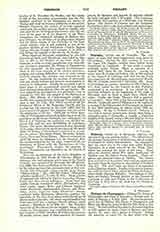

Thibaut de Champagne.—Thibaut IV, Count of Champagne and King of Navarre, a French poet, b. 1201, at Troyes; d. July 8, 1253. He was the posthumous son of Thibaut III, Count of Champagne and Blois, and Blanche, sister of Sancho VII, King of Navarre. He had to defend his rights to his countship first in 1221 against his uncle, Count of Brienne, and later against his aunt, Alice, Queen of Cyprus. During the minority of Louis IX, he first sided with the nobles against Blanche of Castile, but he soon separated from them, and being attacked by them, he was defended by the queen. In 1234, his uncle Sancho VII having died childless, he succeeded him as King of Navarre. He was the leader of the crusade organized in 1239 by Gregory IX, and landed at Acre on the first of September, fought several unsuccessful battles, and after his troops were decisively defeated at Gaza, he left Syria on September 1, 1240. In order to arouse the zeal of the nobility for the defense of the Holy Land, he composed four songs, known as Crusade songs, which rank among his best; their literary value is equal to their Christian inspiration. Very little is known of his life after he returned from his campaign in Palestine. There is some uncertainty concerning the place where he died, at Provins, Troyes, or in Navarre. He is regarded as one of the greatest lyrical poets of the thirteenth century. His rhythms are most harmonious, his combinations of metres show a real skill, while his expressions are full of refinement and true sentiment. His verses have been published, under the title of “Poesies du Roi de Navarre“, by Levesque de la Ravalliere (Paris, 1742). They consist of sixty-six poems, divided as follows: thirty-nine love sings, twelve jeux-partis, or debating songs, four Crusade songs, and eight serventois. Dante and Petrarch had the greatest regard for this poet and spoke of him in most laudatory terms.
LOUIS N. DELAMARRE

